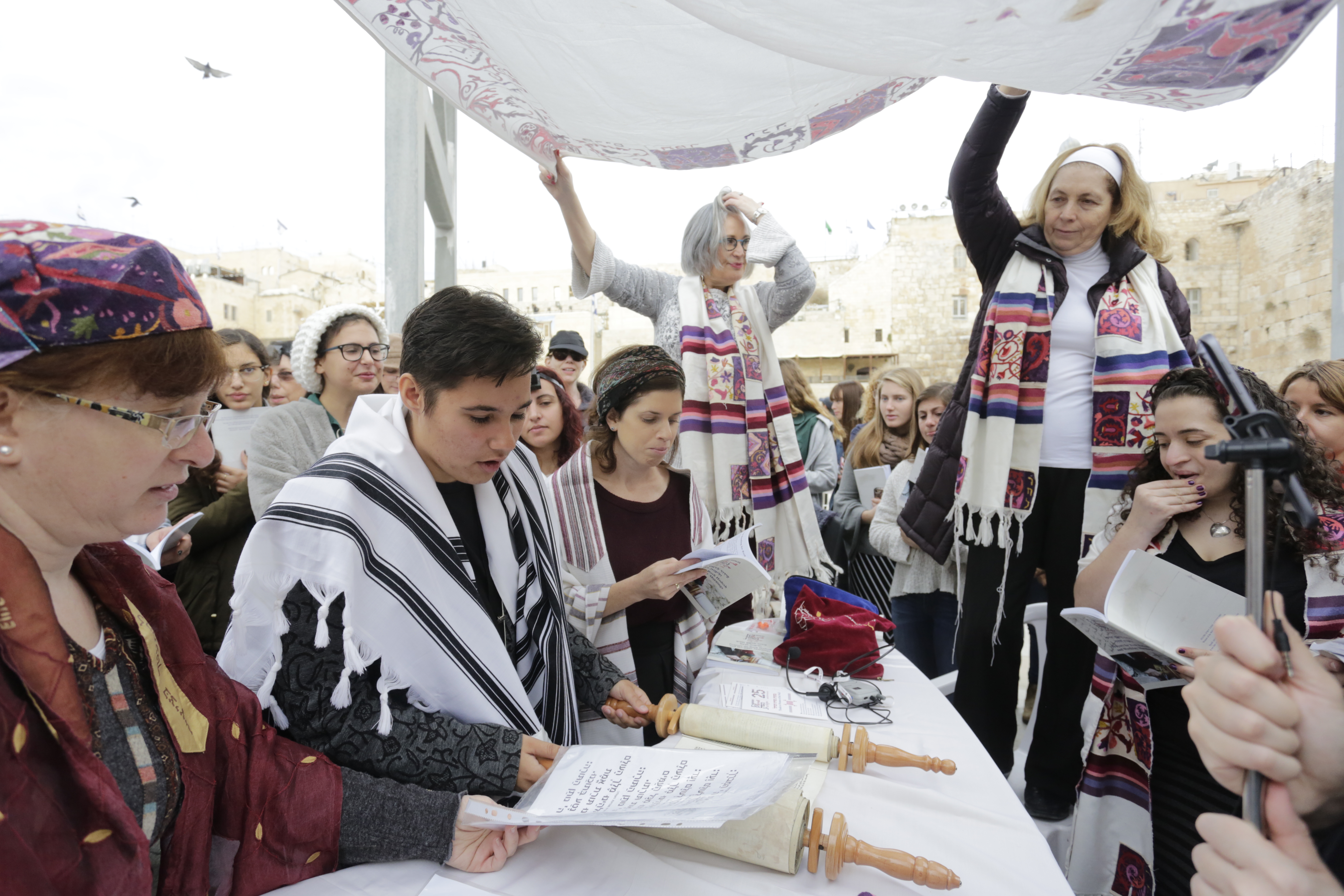by Eliana Fischel, HUC-JIR First Year Rabbincal Student and Women of the Wall Intern
As I begin my last month in Israel for the year, it seems fitting that the parsha includes a calendar. Parshat Emor establishes Jewish time. God tells Moses to tell the children of Israel, “These are fixed times for the Eternal, which you will proclaim as holy callings, these are the fixed times.” (Leviticus 23:2) God goes on to describe the major holidays, or fixed times, of the year and the expectations of those days. Interestingly, the first expectation has already been stated: that the children of Israel will designate the day as a “holy calling”. How? By completing the tasks God requires: sacrificing, eating unleavened bread, sounding a shofar, etc. A “holy calling” requires action. Setting them aside as fixed days is not enough. The children of Israel need to be called to act in a holy manner on these days. This work does not happen by sitting idly by, but rather by hard labor accompanied with immense intention. This year, my first in Rabbinical School at Hebrew Union College-Jewish Institute of Religion, I was lucky enough to witness what enacting a “holy calling” looks like.
For the past nine months, I’ve been working as an intern for Women of the Wall/Nashot HaKotel. Along with the Jewish calendar stated in Parshat Emor, this year was shaped, in particular, by the Rosh Chodesh calendar. There was Rosh Chodesh Av, my first at the Kotel, when we were barricaded in the welcome plaza, holding each other’s hands to not be afraid. There was Rosh Chodesh Cheshvan—the first time I witnessed women dancing at the Kotel. Rosh Chodesh Kislev—when we filled the Ezrat Nashim with women from Israel and the United States for Nashot HaKotel’s 25th Anniversary. And the list goes on to today, Rosh Chodesh Iyar, when women from another prayer group were already dancing when we arrived and Nashot HaKotel joined in, no longer in activism, just in joy.
These mornings of Roshei Chodeshim were not just “fixed times”, they were a “holy calling”. We prayed passionately. We answered words of hate with “Chodesh Tov.” We immediately welcomed strangers into our community. And our love for Judaism and equality empowered these actions.
As seen from Parshat Emor, Judaism is a religion of action. Nashot HaKotel exemplifies this commandment. The women of Nashot HaKotel have taught me what it means to not just learn Torah, but to enact Torah and for this, I am forever grateful. Chodesh Tov.
by Eliana Fischel, HUC-JIR First Year Rabbincal Student and Women of the Wall Intern
Photo Credit: Hila Shiloni

